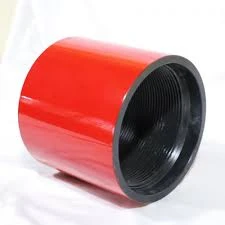- Afrikaans
- Albanian
- Amharic
- Arabic
- Armenian
- Azerbaijani
- Basque
- Belarusian
- Bengali
- Bosnian
- Bulgarian
- Catalan
- Cebuano
- Corsican
- Croatian
- Czech
- Danish
- Dutch
- English
- Esperanto
- Estonian
- Finnish
- French
- Frisian
- Galician
- Georgian
- German
- Greek
- Gujarati
- Haitian Creole
- hausa
- hawaiian
- Hebrew
- Hindi
- Miao
- Hungarian
- Icelandic
- igbo
- Indonesian
- irish
- Italian
- Japanese
- Javanese
- Kannada
- kazakh
- Khmer
- Rwandese
- Korean
- Kurdish
- Kyrgyz
- Lao
- Latin
- Latvian
- Lithuanian
- Luxembourgish
- Macedonian
- Malgashi
- Malay
- Malayalam
- Maltese
- Maori
- Marathi
- Mongolian
- Myanmar
- Nepali
- Norwegian
- Norwegian
- Occitan
- Pashto
- Persian
- Polish
- Portuguese
- Punjabi
- Romanian
- Russian
- Samoan
- Scottish Gaelic
- Serbian
- Sesotho
- Shona
- Sindhi
- Sinhala
- Slovak
- Slovenian
- Somali
- Spanish
- Sundanese
- Swahili
- Swedish
- Tagalog
- Tajik
- Tamil
- Tatar
- Telugu
- Thai
- Turkish
- Turkmen
- Ukrainian
- Urdu
- Uighur
- Uzbek
- Vietnamese
- Welsh
- Bantu
- Yiddish
- Yoruba
- Zulu
steel couplings for pipe
Steel Couplings for Pipe A Comprehensive Overview
Steel couplings play a pivotal role in the construction and maintenance of piping systems. These essential components are widely utilized in various industries, including water supply, oil and gas, and chemical manufacturing. The significance of steel couplings lies in their ability to connect two sections of pipe, ensuring a secure and leak-free joint. This article explores the various types, benefits, and applications of steel couplings in piping systems.
Types of Steel Couplings
Steel couplings come in several varieties to accommodate different requirements and applications. The most common types include
1. Rigid Couplings These couplings are designed to create solid connections between pipes, ensuring precise alignment. They are typically used in applications where movement or flexibility is not critical, such as in gravity-fed water systems.
2. Flexible Couplings Unlike rigid couplings, flexible couplings allow for some movement and accommodate minor misalignments. This flexibility is essential in systems that may experience thermal expansion, contraction, or ground movement.
3. Compression Couplings These couplings utilize compression to connect two pipe sections, offering a secure joint without the need for welding or threading. They are particularly beneficial for quick installations and maintenance.
4. Threaded Couplings These are designed with threads on both ends and are used to join pipes with matching threads. They are commonly found in small diameter piping systems, where ease of disassembly is necessary.
5. Welded Couplings For applications requiring maximum strength, welded couplings are used. In this process, the coupling is melted to the pipe ends, forming a continuous metal bond that can withstand high pressure and stress.
Benefits of Steel Couplings
steel couplings for pipe

Steel couplings are favored for several reasons. One of the primary advantages is their durability. Steel is a strong material that can withstand high pressure, temperature variations, and corrosive environments. This durability translates into lower maintenance costs and a longer lifespan for the piping system.
Additionally, steel couplings offer excellent resistance to mechanical stress and impact. In environments where the pipes might be subject to vibration or external forces, the use of steel couplings ensures the integrity of the joint remains intact.
Another significant advantage is the adaptability of steel couplings. With various types available, they can be easily implemented in existing systems or new installations, providing versatility across different scenarios.
Applications of Steel Couplings
The applications of steel couplings are vast and varied. In the oil and gas industry, they are essential for connecting pipelines that transport crude oil, natural gas, and refined products. The robust nature of steel ensures that these couplings can withstand the demanding conditions associated with such applications.
In water infrastructure, steel couplings are commonly utilized in municipal water supply systems, sewer lines, and irrigation pipelines. Their ability to create dependable joints contributes significantly to the overall reliability of these essential services.
Moreover, steel couplings play a critical role in industrial processes requiring the transfer of chemicals and other hazardous materials. Their strength and resistance to corrosion make them ideal for handling corrosive substances or high-pressure fluids.
Conclusion
In summary, steel couplings are vital components in the construction and maintenance of piping systems across various industries. Their durability, adaptability, and strength make them an excellent choice for ensuring leak-free and secure connections. As industries continue to evolve and demand more efficient and reliable piping solutions, the role of steel couplings will undoubtedly remain significant in the future of infrastructure development and maintenance. Whether in water supply lines or complex industrial systems, steel couplings are essential for achieving operational integrity and efficiency.
-
Tubing Pup Joints: Essential Components for Oil and Gas OperationsNewsJul.10,2025
-
Pup Joints: Essential Components for Reliable Drilling OperationsNewsJul.10,2025
-
Pipe Couplings: Connecting Your World EfficientlyNewsJul.10,2025
-
Mastering Oilfield Operations with Quality Tubing and CasingNewsJul.10,2025
-
High-Quality Casing Couplings for Every NeedNewsJul.10,2025
-
Boost Your Drilling Efficiency with Premium Crossover Tools & Seating NipplesNewsJul.10,2025







